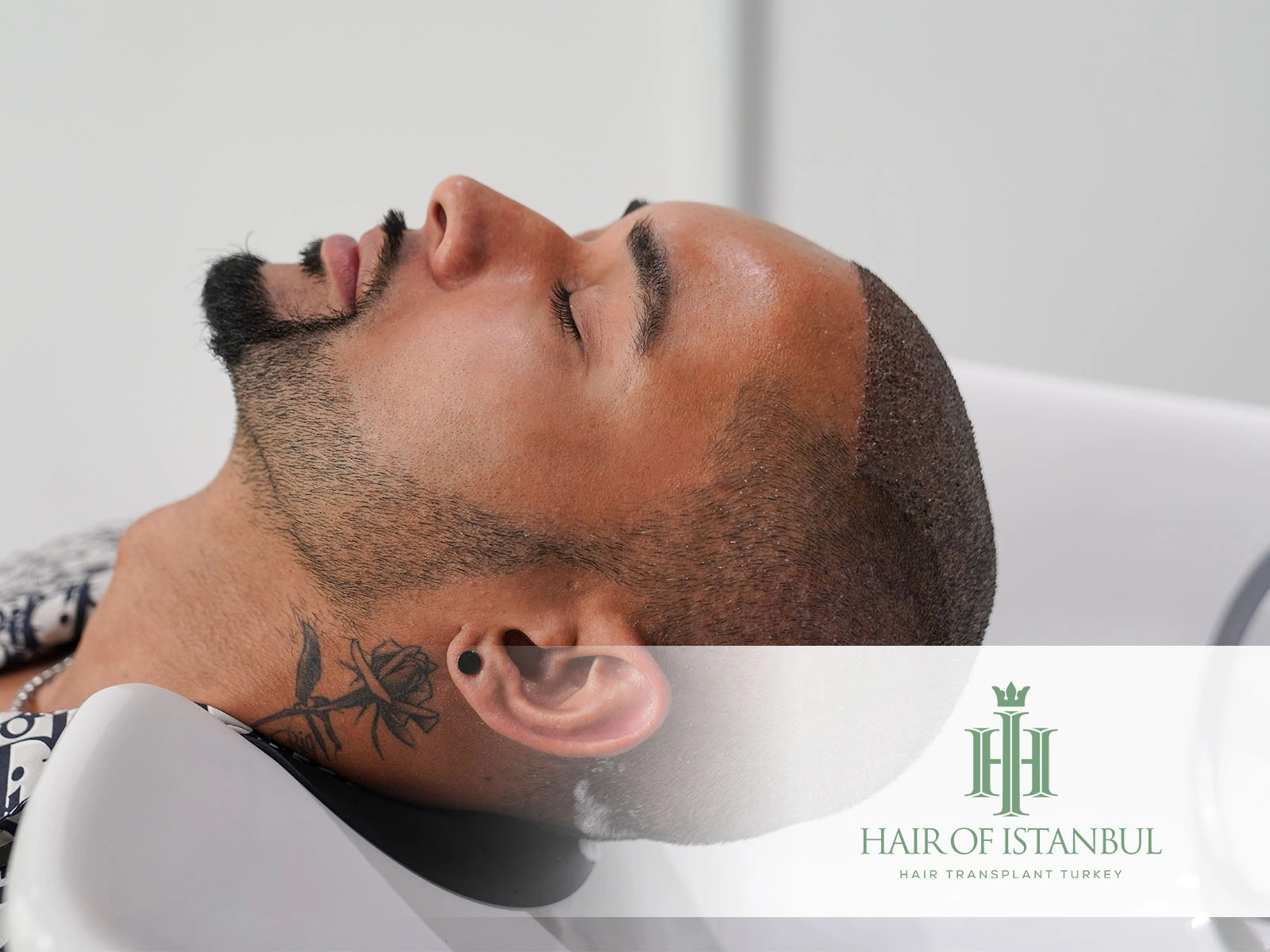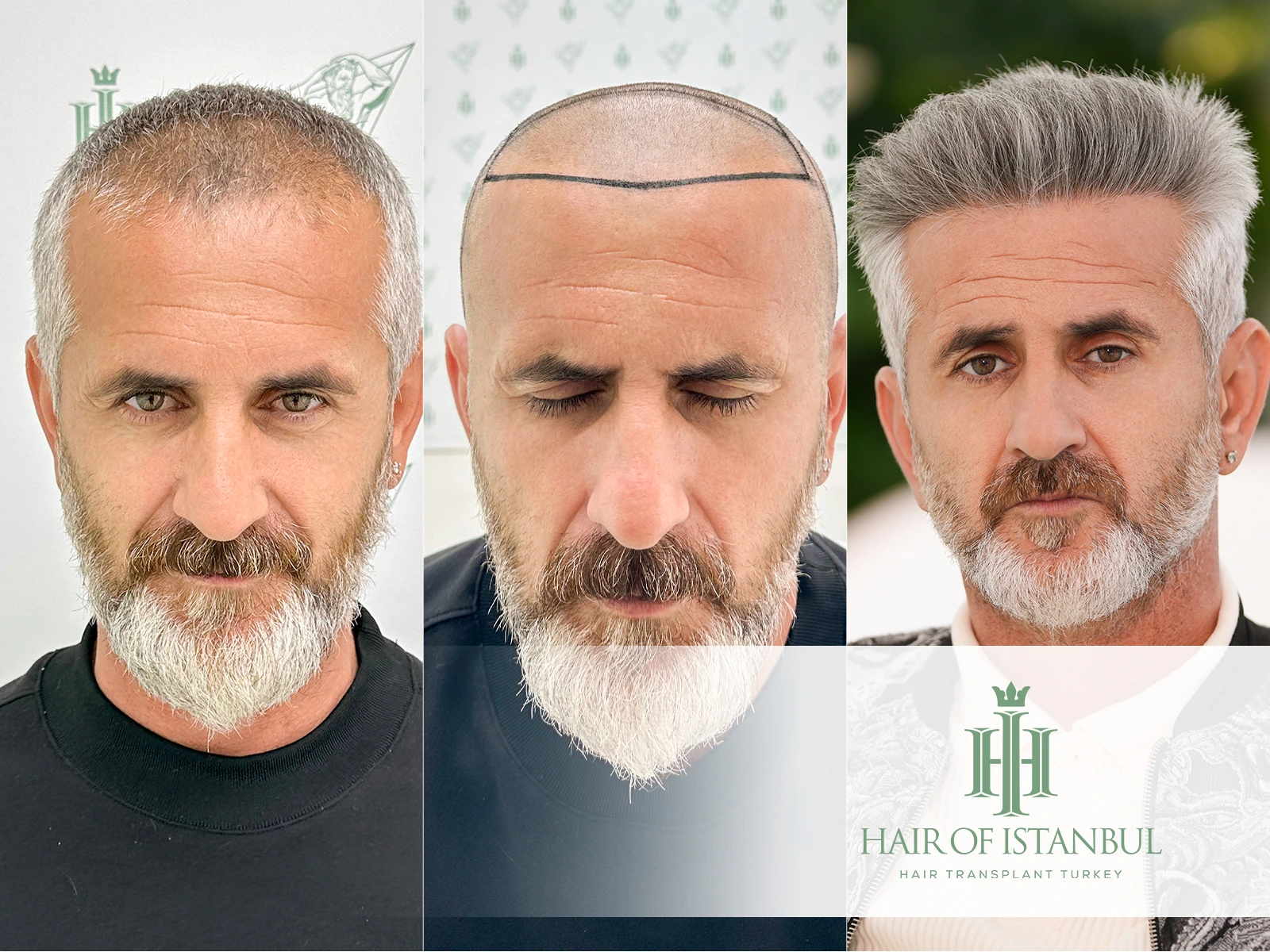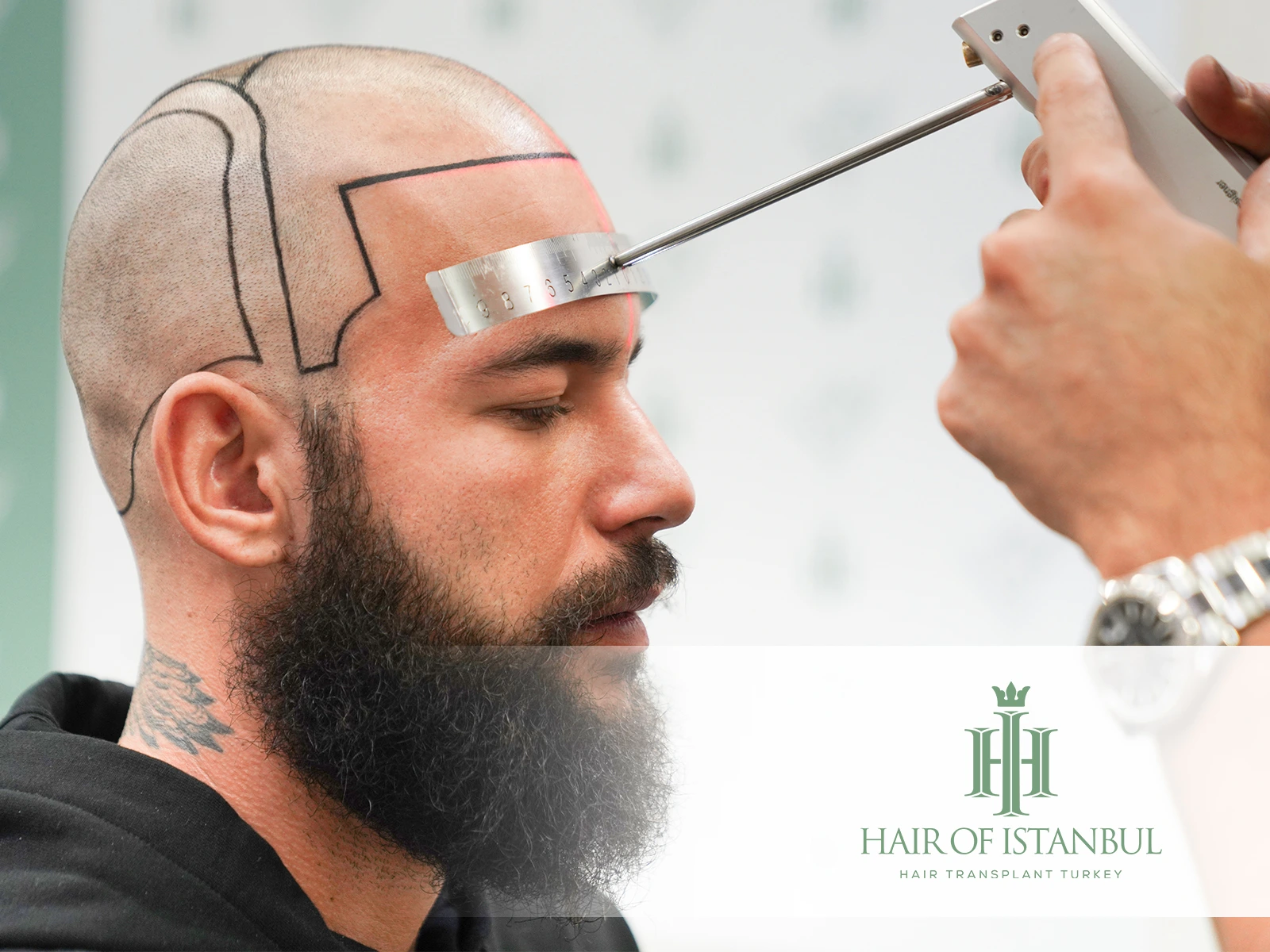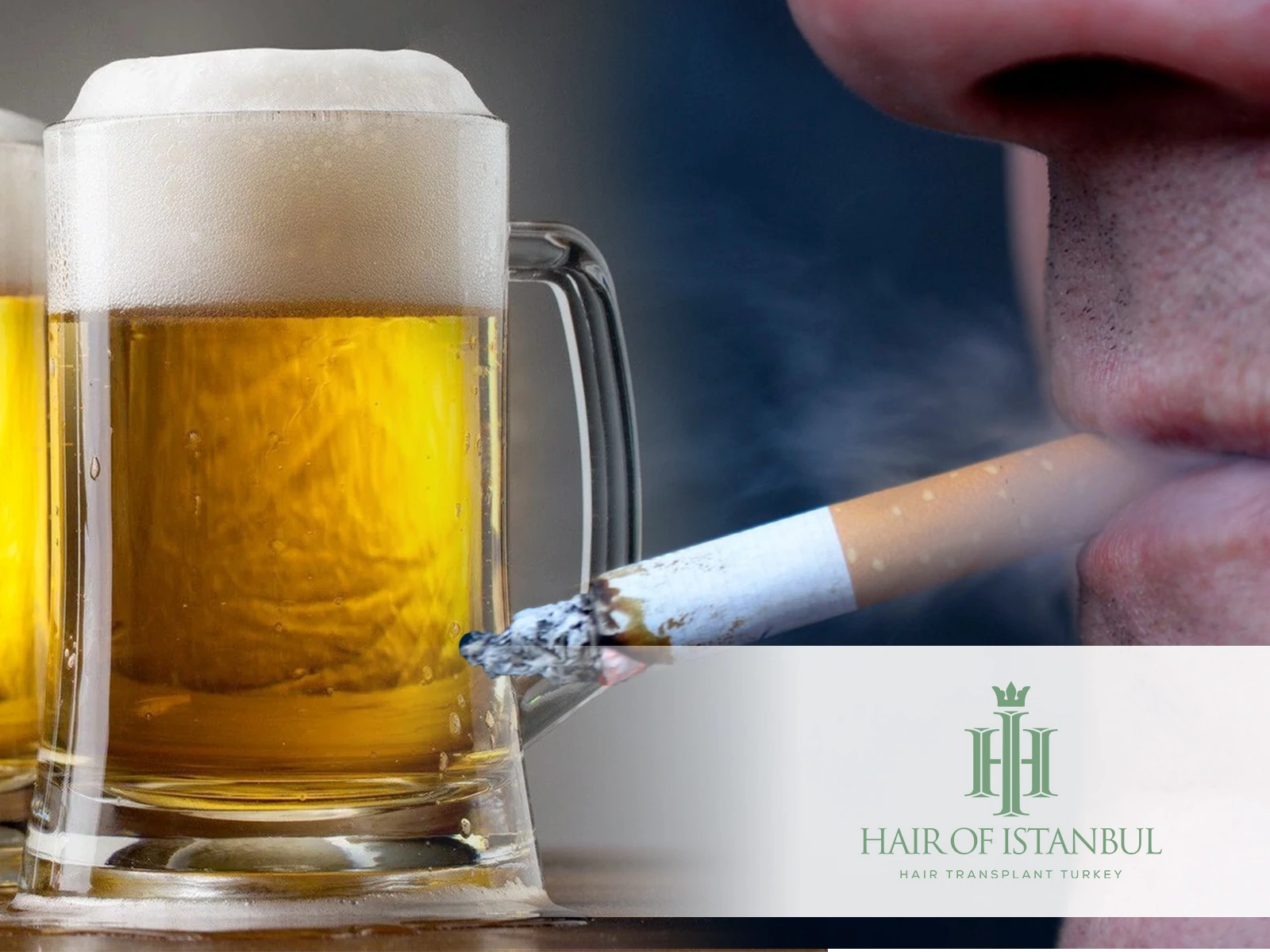Does Melatonin Cause Hair Loss? Truth and Rumors!
The issue of hair loss is something that bothers countless individuals, sparking endless questions about what might cause it and how it can be tackled. Among the myriad of potential factors and solutions, melatonin emerges as an unexpected contender.
Most recognize melatonin for its association with sleep regulation, but its connection to hair health is lesser-known. As we navigate this topic, one might wonder: is melatonin a friend or foe to our tresses? Join us as we uncover the intricacies of melatonin’s relationship with hair.
What is melatonin?
Melatonin is a hormone our brain makes when it’s dark. It helps control our sleep and wake cycles, known as circadian rhythms. However, being exposed to light at night can reduce its production. This is because our brain thinks it’s still daytime and cuts back on making melatonin. [1]
What does melatonin do to the hair?
Stress, often a silent culprit, can accelerate hair loss. Melatonin emerges as a powerful antioxidant combatting stress, and its effects don’t stop there.
Hair follicles have melatonin receptors, indicating a significant role of this hormone in hair growth. In essence, melatonin not only shields our hair roots but also fosters the growth of hair cells. [2]
Is hair loss a side effect of melatonin?
Many are curious about the intriguing link between melatonin, hair loss, and sleep. Research suggests that melatonin might slow down hair loss and even promote hair regrowth. Particularly in women, melatonin appears to offer a promising solution for hair loss.
One study observed a significant reduction in hair loss following topical melatonin application. Moreover, the presence of melatonin receptors in hair follicles hints that they can synthesize melatonin, potentially boosting hair growth. [3]
Also Read: Understanding Average Forehead Size
Who should avoid taking melatonin?
Melatonin can be beneficial, but it’s not suitable for everyone. For example, children should only use it when medically necessary and under strict supervision. And for certain conditions, melatonin might cause complications. Always seek advice from a healthcare professional before starting melatonin supplements. [4]
| Children: | Should only take if medically needed and under specialist’s supervision. |
| Individuals with bleeding disorders: | Risk of increased bleeding. |
| People with depression: | Potential to worsen depression symptoms. |
| Those with high blood pressure: | Risk of raising blood pressure levels. |
| Individuals with seizure disorders: | Potential to increase the risk of seizures. |
| Organ transplant recipients: | Can have side effects when taken with immunosuppressant drugs, despite potential immune system benefits. |
*Always consult with a healthcare professional regarding any concerns or conditions. This content is for general information and not a substitute for professional medical advice.
What are the adverse effects of melatonin supplementation?
While many find melatonin beneficial, it’s essential to recognize some potential side effects. Commonly reported ones include headaches, while some experience daytime drowsiness due to its sleep-inducing nature. Dizziness can be a concern, making it crucial to avoid alcohol during supplementation.
A few users may deal with nausea, so it’s wise to discuss any concerns with a doctor. Vivid dreams or even nightmares have been noted by some. Occasionally, stomach cramps may arise, and mood shifts such as short-lived depression or irritability can occur. [5]
| Headaches: | One of the most frequently reported side effects of melatonin. |
| Daytime Drowsiness: | Its sleep-promoting effects might linger, leading to daytime fatigue. |
| Dizziness: | Possible side effect. Refrain from alcohol while using melatonin. |
| Nausea: | It can happen during supplementation but could stem from other causes. Seek advice if concerned. |
| Vivid Dreams or Nightmares: | Some users have described experiencing intense dreams or unsettling nightmares. |
| Stomach Cramps: | Limited studies suggest potential stomach discomfort. |
| Mood Shifts: | Fluctuations in mood, temporary depression, or irritability might be linked to melatonin use. |
*It’s essential to understand that these effects aren’t universally experienced and may vary among individuals.
Can your body become dependent on melatonin?
Melatonin is a hormone produced naturally by the brain, mainly as a response to darkness. While external supplementation might produce varied effects from person to person, it doesn’t lead to physical dependence.
However, some might feel a psychological reliance on melatonin over time, thinking they need it for sleep. This psychological inclination doesn’t equate to the body developing a physiological addiction. [6]
Also Read: 8000 Grafts Hair Transplant: Everything You Need to Know
How much melatonin should be taken?
Determining the right amount of melatonin is largely influenced by individual sleep patterns and issues. Seeking advice from a professional can guide optimal and secure consumption.
Typically, a 2 mg slow-release pill about 30 minutes to an hour before slumber is a usual initiation point. Nonetheless, it’s generally advisable not to surpass a total of 10 mg, or 5 tablets, daily. It’s crucial to grasp that each person’s reaction might vary. Hence, adhering to medical advice ensures tailored and effective usage. [7]
What happens when you stop taking melatonin?
Stopping melatonin doesn’t lead to withdrawal symptoms since it isn’t habit-forming. In fact, a study published in the British Journal of Clinical Pharmacology found that the benefits of melatonin start to diminish after three months of consistent use.
Those contemplating starting melatonin supplements or halting their intake should certainly consider consulting a physician. This ensures a clear understanding of the potential implications and optimal usage based on individual needs. [8]
Also Read: How Many Grafts Do I Need for My Hair Transplant? Calculate It!
Why was melatonin banned in the UK?
In the United Kingdom, melatonin is classified as a prescription-only medication. This means it’s perfectly legal, but only when prescribed by a health professional. The misconception about melatonin being “banned” arises because you can’t easily find it in health food stores or online platforms. For further details, one might refer to this article. [9]
Does melatonin affect hair growth?
Indeed, melatonin has been associated with positive impacts on hair growth. Several studies suggest that when taken in minimal dosages, melatonin can slow the progression of hair loss and even enhance hair density.
This effect is observed in both men and women experiencing hair thinning or loss. As always, understanding the correct dosage and potential effects is key, making professional guidance beneficial. [10]
How to use melatonin for hair growth?
Melatonin isn’t just renowned for sleep regulation; it’s a potent antioxidant, especially when applied topically. This unique property helps cleanse the scalp from free radicals.
Additionally, melatonin acts as a DNA repair inducer, providing cells with essential defense strategies. To leverage these benefits for hair growth, topical application is key. [11]
- Cleanse: Start with a clean scalp. Use a mild shampoo and rinse thoroughly.
- Apply: Dispense the recommended amount of melatonin serum or lotion onto your palm and massage gently into the scalp.
Which foods contain melatonin?
Certain foods naturally boost our melatonin levels. Rich in compounds like tryptophan and magnesium, these edibles can aid in promoting sleep. Consuming them might be the natural route to enhancing your melatonin levels, possibly leading to a more restful night. Below is a table showcasing foods that are known to elevate melatonin levels: [12]
| Milk | Tryptophan |
| Pistachios | Melatonin |
| Cherries | Melatonin |
| Fatty Fish | Omega-3 & Vitamin D |
| Rice | Tryptophan |
| Goji Berries | Melatonin |
| Oats | Magnesium |
| Mushrooms | Tryptophan |
| Corn | Melatonin |
| Bananas | Magnesium & Tryptophan |
*Remember, while these foods can contribute to better sleep, it’s always vital to maintain a balanced diet and consult with health professionals about any significant dietary changes.
Also Read: Folliculitis After Hair Transplant: Symptoms, Causes, Treatments
FAQ
Does taking melatonin stop hair from turning white?
Melatonin showcases protective effects on cells, including stem cells, which might play a role in hair health. Such influences potentially reduce hair whitening and enhance natural hair pigmentation. [13]
Is taking melatonin every night harmful?
If someone feels the need for consistent melatonin supplementation, it’s paramount to first delve into the root causes. Given that melatonin’s effects can vary from individual to individual, it’s advisable to determine its usage duration under physician supervision. [14]
Can melatonin affect your heart?
Melatonin acts as a guardian antioxidant for cells within the heart and blood vessels. Studies have revealed that individuals with cardiovascular diseases often possess lower melatonin levels compared to their healthier counterparts. [15]
Does melatonin increase blood pressure?
In certain circumstances, melatonin might elevate blood pressure, especially among those on hypertension medications. Moreover, it has the potential to raise blood sugar levels in diabetics. [16]
Does melatonin help with anxiety?
Research has suggested that melatonin intake can play a role in reducing anxiety levels. This natural compound may offer some individuals relief from heightened stress or nervousness. [17]
Is taking melatonin indefinitely safe?
While melatonin is safe for short-term use, long-term consumption might reduce its effectiveness and disrupt the body’s natural melatonin production. Extended use can also lead to unforeseen adverse effects. [18]
Is melatonin beneficial for hair loss?
Scientific studies have indicated that melatonin may harbor the capability to decelerate hair shedding. Moreover, it might even encourage hair regrowth, providing hope for those struggling with thinning hairlines. [19]
Also Read: Mature Vs Receding Hairline: What’s The Real Difference?
CONCLUSION
In conclusion, while many often associate melatonin with sleep regulation, its relationship with hair health is a topic of burgeoning interest. The studies and experiences I’ve witnessed at Hair of Istanbul clinic solidify the notion that the compound might play a pivotal role in hair dynamics. It’s essential to understand that the intricate balance of hair health is a combination of various factors, and while melatonin plays its part, there’s a plethora of elements involved.
Hair of Istanbul clinic, with its advanced techniques and dedicated research, remains committed to exploring these connections further, ensuring that patients receive the most informed care available. Anyone keen on understanding the broader spectrum of hair health should consider the expertise offered by our clinic.
References:
- [1] NIH, Jul 2022 – Melatonin: What You Need To Know – https://www.nccih.nih.gov/health/melatonin-what-you-need-to-know
- [2] Dr. Emil Shakov, Aug 17, 2022 – Does Melatonin Work for Hair Loss? – https://www.njfue.com/blog/melatonin-work-for-hair-loss
- [3] Wimpole Clinic, Aug 25, 2023 – Melatonin & Hair Loss: Is There a Connection? – https://wimpoleclinic.com/blog/melatonin-hair-loss-is-there-a-connection/
- [4] WebMD, Unknown Date – Melatonin – Uses, Side Effects, and More – https://www.webmd.com/vitamins/ai/ingredientmono-940/melatonin
- [5] Jay Summer, Oct 11, 2023 – Melatonin Side Effects – https://www.sleepfoundation.org/melatonin/melatonin-side-effects
- [6] Cleveland Clinic, Oct 21, 2022 – The Truth About Melatonin Addiction – https://health.clevelandclinic.org/melatonin-dependency/
- [7] NHS, Feb 23, 2023 – How and when to take melatonin – https://www.nhs.uk/medicines/melatonin/how-and-when-to-take-melatonin/
- [8] Maria Faller, Jul 22, 2021 – What Really Happens When You Stop Taking Melatonin – https://www.healthdigest.com/467828/what-really-happens-when-you-stop-taking-melatonin/
- [9] Hywel McGlinchy, Jan 27,2022 – Why is Melatonin banned in the UK? – https://www.simpleonlinepharmacy.co.uk/blog/why-is-melatonin-banned-in-the-uk/
- [10] Dr. Emil Shakov, Aug 17, 2022 – Does Melatonin Work for Hair Loss? – https://www.njfue.com/blog/melatonin-work-for-hair-loss
- [11] Jill Barat, Unknown Date – Melatonin for Hair Growth: Can This Sleep Hormone Help Your Hair? – https://www.struthealth.com/blog/melatonin-for-hair-growth-can-this-sleep-hormone-help-your-hair
- [12] Dr. Michael Breus, June 29, 2023 – Foods That Are High in Melatonin – https://sleepdoctor.com/melatonin/foods-with-melatonin/
- [13] NOVOS, Nov 11, 2020 – What causes gray hair and how to reverse gray hair? – https://novoslabs.com/why-do-we-get-gray-hair-and-how-to-reverse-gray-hair/
- [14] Katie McCallum, Jul 28, 2022 – Is It Bad to Take Melatonin Every Night? (& 5 More Questions About Melatonin, Answered) – https://www.houstonmethodist.org/blog/articles/2022/jul/is-it-bad-to-take-melatonin-every-night-5-more-questions-about-melatonin-answered/
- [15] The Conversation, Mar 30, 2022 – Melatonin’s role in protecting the heart – the evidence so far – https://theconversation.com/melatonins-role-in-protecting-the-heart-the-evidence-so-far-179387
- [16] U.S. Pharmacist, Oct 30, 2019 – Although Safe for Most, Melatonin Causes Unexpected Interactions in Others – https://www.uspharmacist.com/article/although-safe-for-most-melatonin-causes-unexpected-interactions-in-others
- [17] Suchandrima Bhowmik, Sep 27, 2022 – Does melatonin help with anxiety? – https://www.medicalnewstoday.com/articles/does-melatonin-help-with-anxiety
- [18] Jay Summer, Oct 16, 2023 – Is It Safe to Take Melatonin Every Night? – https://www.sleepfoundation.org/melatonin/is-it-safe-to-take-melatonin-every-night
- [19] Michael Panayiotis Kokotsis, Apr 25, 2022 – Melatonin & Hair Loss: Is There a Connection? – https://wimpoleclinic.com/blog/melatonin-hair-loss-is-there-a-connection/







